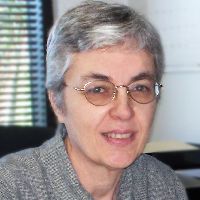Print This Page
|
Click to View All Speakers
|

Sue Othmer
|
Sue Othmer is Clinical Director of the EEG Institute in Woodland Hills, California. She has been involved in clinical research and the development of EEG biofeedback protocols since 1988. She teaches professional training courses in EEG biofeedback, and presents clinical research findings in professional forums.
|
|
EEG Foundations Course #317): An Evolving Clinical Model of Neurofeedback
In order to understand and effectively use neurofeedback, it is helpful to consider how the brain manages its own brain states, and how this process is disregulated in different individuals. Neurofeedback will be seen first as an exercise in self-regulation of state and second as a process for accessing deep states for resolution of learned fears and habits.
An evolving clinical model will be discussed that helps guide neurofeedback assessment and training in order to optimize training benefits for each client. Understanding the specific effects of reward and inhibit frequencies allows the adjustment of training protocol within and between sessions according to the clientís response to training. General and specific effects of training different cortical sites also guide protocol development to address each individualís specific symptoms.
The clinical model allows us to think about neurofeedback as a process of improving function by increasing self-regulation of brain states. This applies both to symptom reduction and also to peak performance applications. Tools for assessing and tracking performance will be discussed. Expected outcomes will be considered in terms of rate of progress, and short-term and long-term gains with varying clinical complexity.
Plenary #318): More Effective Neurofeedback with Very High-Arousal Clients: Going Below 0-3 Hz
High-arousal neurofeedback clients have continued to challenge us over the years to develop techniques that are sufficiently calming. Each new approach has extended our reach, but also revealed a population that could benefit from even more calming. This past year has seen another breakthrough in our ability to help a broader spectrum of high-arousal clients and to impact them more profoundly. We are now achieving greater clinical success with symptoms of autism, reactive attachment disorder and childhood bipolar disorder, as well as severe pain, anxiety and sleep disorders,
In this presentation we will discuss a model of reward frequency related to individual arousal level. The use of reward frequencies below 0-3 Hz for some individuals will be described for inter-hemispheric and for left and right-hemisphere neurofeedback training.
Implications of this new low frequency training for the clinical model will also be discussed.
Workshop #319): Neurofeedback with Young Children
There has been some controversy within the neurofeedback community regarding the possibility of working with children under 6 or 7 years of age. Our clinical experience over the last 20 years is that even very young children are able to effectively engage with and benefit from neurofeedback. This follows from a model of neurofeedback as a simple brain exercise leading to improved self-regulation of brain states. In the first few years of life our brains are learning basic self-regulation of physical, emotional and physiological states. If that development is not on track, it is useful to intervene as soon as possible in order to provide a better foundation for later development.
In this workshop, we will discuss why we might work with young children and what outcomes are expected. We will review our clinical experience with young children and infants who are brain injured, developmentally delayed or dangerously hyperactive, agitated or aggressive. We will also discuss in detail appropriate neurofeedback protocols and feedback modalities, as well as communication and assessment during and between sessions.
Details:
EEG Foundations Course #317): An Evolving Clinical Model of Neurofeedback
Plenary #318): More Effective Neurofeedback with Very High-Arousal Clients: Going Below 0-3 Hz
Workshop #319): Neurofeedback with Young Children
Contact Info:
Sue Othmer
22020 Clarendon Street
Suite 305
Woodland Hills, California 91367
phone: 818-373-1334
fax: 818-373-1331
sue@eeginfo.com
|
Click to View All Speakers
|
